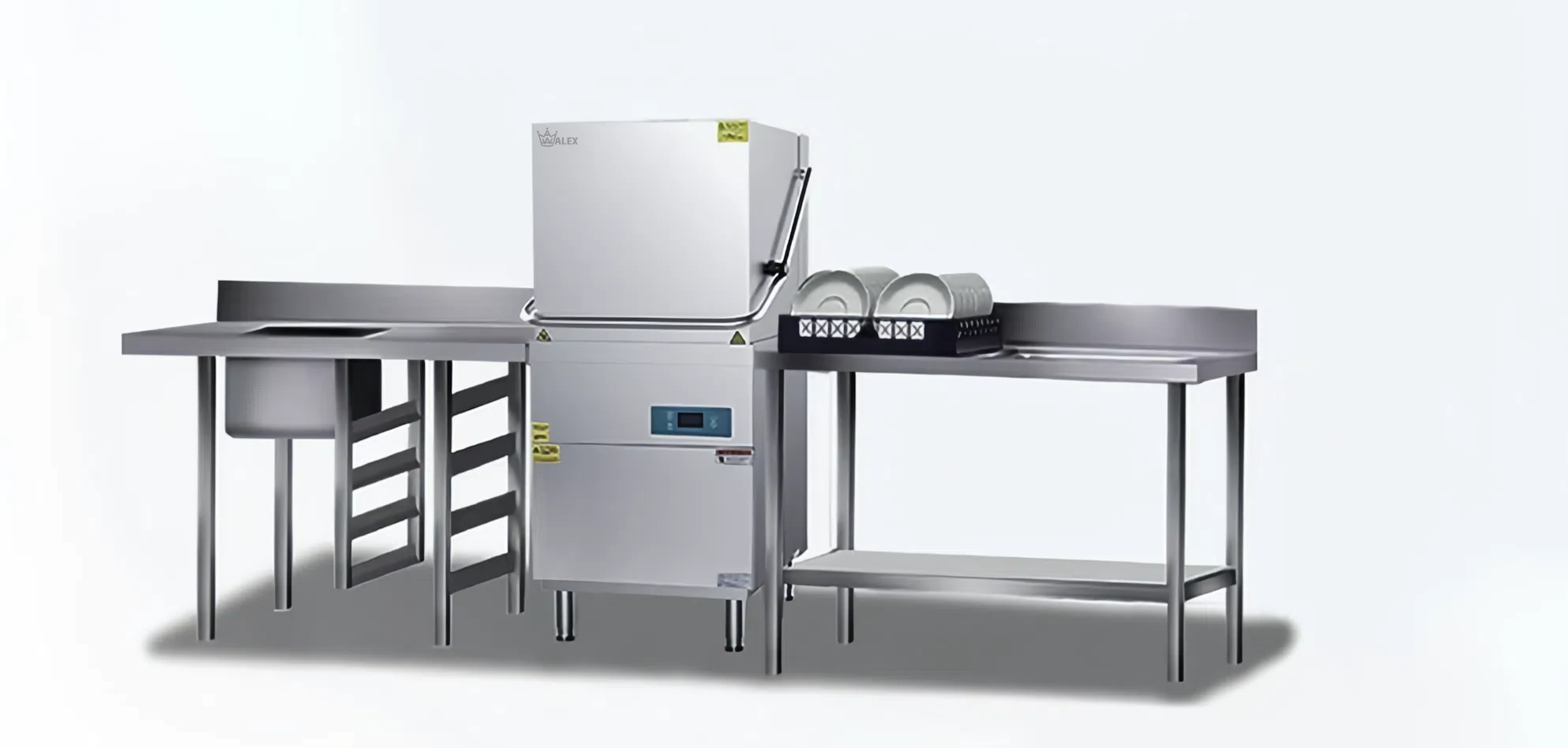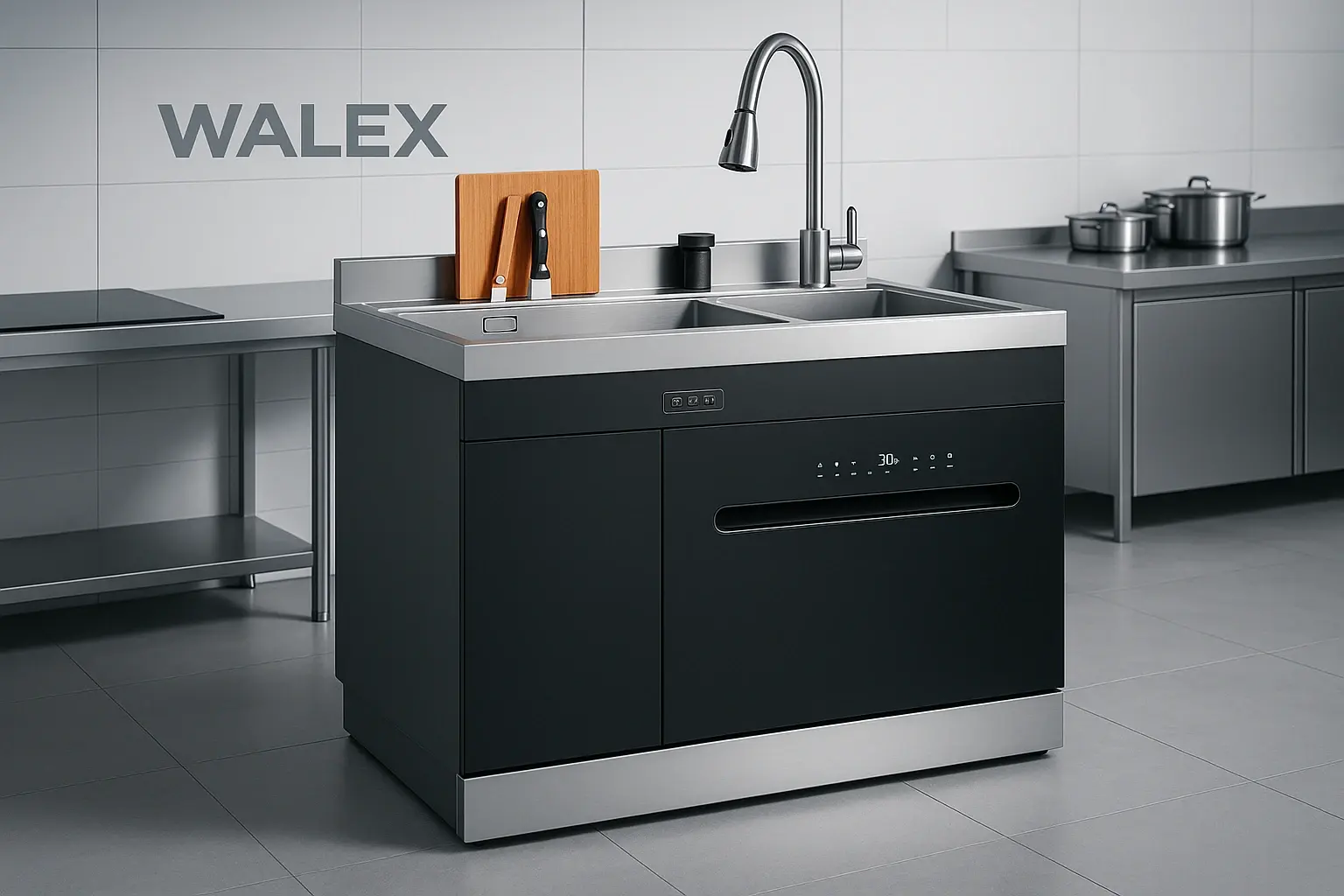In today’s rapidly evolving appliance market, selecting the right dishwasher factory partner has become a critical determinant of wholesale business success across Australia’s diverse regional markets. The competitive landscape demands a sophisticated understanding of both manufacturing capabilities and regional market dynamics to build sustainable partnerships that drive long-term profitability. This comprehensive analysis examines the essential core capabilities required from dishwasher factory partners while providing strategic insights for the five key Australian markets: Adelaide, Sunshine Coast, Perth, Brisbane, and Melbourne.
Core Capabilities Framework for Dishwasher Factory Partners
The foundation of successful wholesale partnerships rests on six critical capability categories that directly impact competitive advantage and market performance. Based on extensive industry analysis, Product Quality emerges as the most crucial factor, accounting for 35% of partnership success, followed by Operational Excellence at 28%.
These capabilities form the backbone of any sustainable manufacturing relationship in the dishwasher industry.

Core Capabilities Framework: Relative importance of different capability categories for dishwasher factory partnerships, with Product Quality and Operational Excellence being the most critical factors
Quality Management Excellence
Quality management represents the cornerstone of effective dishwasher manufacturing partnerships, with ISO 9001:2015 certification serving as a non-negotiable baseline requirement. Statistical Process Control (SPC) implementation ensures consistent product quality while minimizing defects and variations that could damage brand reputation. Advanced testing capabilities, including NSF/ANSI 184 certification for residential dishwashers, validate product performance and ensure market access across all Australian regions.
Continuous improvement programs demonstrate a partner’s commitment to operational excellence and long-term reliability. Environmental management systems, particularly ISO 14001 certification, have become increasingly important as consumers and regulators prioritize sustainability.
Manufacturing Excellence and Operational Efficiency
Modern dishwasher manufacturing demands automated production lines that increase efficiency while maintaining consistent quality standards. Lean manufacturing principles reduce waste and costs, directly impacting the competitive pricing structure essential for wholesale success. Flexible production capacity enables partners to meet seasonal demand fluctuations and accommodate varying order volumes across different regional markets.
The integration of Industry 4.0 technologies enhances operational visibility and process efficiency, creating competitive advantages through real-time monitoring and data-driven decision making. Smart manufacturing systems, including IoT-enabled quality monitoring and AI-powered predictive maintenance, represent the future of appliance production.
Technology Integration and Innovation
Technology integration capabilities determine a factory partner’s ability to adapt to evolving market demands and consumer preferences. Smart connectivity features, including Wi-Fi integration and mobile app control, have become standard expectations rather than premium features. Energy management systems and water conservation technologies address both regulatory requirements and consumer cost concerns.
The technology readiness assessment reveals that smart connectivity and quality systems require the highest implementation priority, while energy management systems offer the best return on investment with low implementation costs. User interface improvements, though lower priority, contribute to market differentiation and customer satisfaction.
Regional Market Analysis and Strategic Positioning
Australia’s dishwasher wholesale market presents distinct regional characteristics that require tailored partnership strategies and capability alignment. Market analysis reveals significant variations in consumer preferences, competitive intensity, and distribution requirements across the five target regions.
Understanding these regional nuances enables more effective partner selection and market penetration strategies.

Regional Market Analysis: Market positioning of five Australian regions showing the relationship between market size, growth potential, and overall market attractiveness for dishwasher wholesale business
Melbourne: Innovation Leadership and Premium Market Focus
Melbourne represents the most attractive market opportunity with the highest overall market attractiveness score of 9.25, driven by its position as Australia’s financial and technology hub.
The region’s very large population base of 5.2 million creates substantial market demand for luxury and premium dishwasher products. However, the extremely competitive environment requires factory partners with exceptional innovation capabilities and premium positioning strategies.
Successful partnerships in Melbourne demand strong technology integration capabilities, particularly in smart appliance features and sustainable manufacturing practices. The multiple distribution channels available require partners with sophisticated logistics capabilities and flexible production systems. Cultural alignment becomes critical given Melbourne’s diverse consumer base and high brand expectations.
Brisbane: Market Penetration and Diverse Segment Management
Brisbane’s diverse economy and large population base of 2.6 million create opportunities across multiple market segments, from value-conscious consumers to premium buyers. The region’s overall attractiveness score of 8.75 reflects strong growth potential balanced against very high competitive intensity. Factory partners must demonstrate exceptional flexibility to serve mixed market segments effectively.
The comprehensive distribution infrastructure in Brisbane supports various go-to-market strategies, but partners must navigate complex distribution networks and high brand loyalty challenges. Strong operational excellence capabilities, particularly in cost management and delivery performance, become essential for success in this competitive environment.
Perth: Premium Positioning and Resource Sector Alignment
Perth’s mining economy strength and large population base of 2.1 million create substantial demand for high-end appliances, particularly in the premium housing market. The region’s overall attractiveness score of 7.25 reflects the balance between market opportunity and challenges such as geographic isolation and intense competition. Factory partners must excel in premium product development and specialized distribution capabilities.
The established distribution channels in Perth favor partners with proven track records and strong brand positioning. Quality management excellence becomes paramount given the premium market focus and high consumer expectations.
Logistical challenges require partners with sophisticated supply chain management capabilities.
Sunshine Coast: Quality Differentiation and Emerging Market Development
The Sunshine Coast represents a growing market opportunity with strong tourism and lifestyle focus, creating demand for quality-focused appliance solutions. The region’s population base of 0.4 million, while smaller than other markets, shows significant growth potential with an attractiveness score of 7.0. Factory partners must balance quality differentiation with competitive pricing in this emerging market.
The developing distribution networks require partners willing to invest in long-term relationship building and market development. Quality-focused buyers in this region prioritize reliability and performance over price, creating opportunities for partners with superior product quality capabilities. Seasonal fluctuations demand flexible production and inventory management systems.
Adelaide: Cost Leadership and Regional Coverage Strategy
Adelaide’s medium population base of 1.4 million and focus on value-conscious consumers creates opportunities for cost leadership strategies. The region’s overall attractiveness score of 6.0 reflects moderate competition intensity and established market conditions. Factory partners must excel in cost optimization while maintaining acceptable quality standards.
The established distribution network provides regional coverage advantages, but geographic distance from major manufacturing centers requires efficient logistics capabilities. Price sensitivity among consumers demands partners with superior cost management and operational efficiency. The industrial heritage of the region creates opportunities for business-to-business partnerships and commercial appliance segments.
Industry Trends and Technology Integration
The dishwasher manufacturing industry is experiencing significant transformation driven by smart technology adoption, sustainability requirements, and evolving consumer preferences. Current high-impact trends focus on IoT connectivity, energy efficiency, and premium market growth, while future developments emphasize manufacturing innovation and market evolution.
Understanding these trends enables better partner selection and capability development strategies.

Industry Trends Analysis: Timeline and impact assessment of key trends in the dishwasher manufacturing industry, showing immediate high-impact opportunities and future development priorities
Smart Technology and Connectivity
Smart technology integration represents the most immediate opportunity for competitive advantage, with IoT connectivity and mobile app control already achieving high market impact. Voice assistant integration and AI-powered controls are emerging as key differentiators for the 2025-2026 timeframe. Factory partners must demonstrate current capabilities in smart connectivity while investing in advanced AI and voice control technologies.
The integration of smart features enhances user experience and enables remote monitoring capabilities that support both consumer convenience and service provider efficiency. Partners with proven expertise in smartphone integration and IoT platforms position themselves advantageously for future market demands.
Sustainability and Environmental Compliance
Sustainability requirements have achieved very high impact status, with energy efficiency standards becoming mandatory rather than optional features. Water conservation technologies provide immediate cost reduction benefits while supporting environmental compliance requirements. Factory partners must demonstrate current compliance with energy efficiency standards and investment in eco-friendly materials development.
Circular economy principles and sustainable manufacturing practices represent emerging trends that will reshape industry standards by 2026-2028. Partners with early investment in these capabilities gain competitive advantages in regulatory compliance and brand differentiation.
Manufacturing Innovation and Digital Transformation
Industry 4.0 adoption has become essential for maintaining competitive operational efficiency, with implementation timelines accelerating to 2024-2025. Automated quality control systems provide direct quality improvement benefits while reducing labor costs and human error. Predictive maintenance capabilities offer cost optimization opportunities through reduced downtime and improved equipment utilization.
Digital twin technology, while currently low impact, represents significant long-term process optimization potential for partners willing to invest in advanced manufacturing capabilities. Early adopters of these technologies position themselves for future competitive advantages as the technology matures.
Strategic Recommendations for Partnership Development
Successful dishwasher factory partnerships require systematic evaluation of capabilities against regional market requirements and industry trend alignment. The core capabilities framework provides a structured approach to partner assessment, while regional market analysis enables targeted strategy development. Implementation of these recommendations creates sustainable competitive advantages across all target markets.
Partnership Evaluation Framework
Implement a weighted scoring system based on the core capabilities framework, prioritizing Product Quality (35%) and Operational Excellence (28%) as primary evaluation criteria. Assess potential partners against critical capabilities including ISO 9001:2015 certification, automated production lines, and NSF/ANSI 184 compliance. Evaluate technology integration readiness, particularly in smart connectivity and quality systems, to ensure future market compatibility.
Financial stability assessment must include evaluation of R&D investment capacity and long-term financial performance to support sustained partnership development. Partnership value factors, while lower weighted, become critical for long-term relationship success and cultural alignment.
Regional Market Adaptation Strategies
Develop region-specific partnership criteria that align with local market characteristics and competitive requirements. Melbourne partnerships should prioritize innovation leadership and premium positioning capabilities, while Adelaide partnerships should focus on cost leadership and operational efficiency. Brisbane requires partners with flexible production capabilities to serve diverse market segments effectively.
Sunshine Coast partnerships benefit from quality differentiation focus and emerging market development capabilities, while Perth demands premium positioning and specialized distribution expertise. Tailor capability requirements and investment priorities to match regional strategic priorities and market opportunities.
Technology Investment Priorities
Prioritize immediate investment in smart connectivity and quality systems as highest-impact, highest-priority technology areas. Implement energy management improvements as low-cost, high-return investments that address sustainability requirements. Plan medium-term investments in user interface improvements and advanced manufacturing technologies.
Monitor emerging trends in AI-powered controls, voice assistant integration, and digital twin technology for future capability development. Establish technology roadmaps that align with industry adoption timelines and regional market requirements.
Conclusion
The selection of dishwasher factory partners requires comprehensive evaluation across six critical capability categories, with particular emphasis on Product Quality and Operational Excellence as primary success factors. Regional market differences across Adelaide, Sunshine Coast, Perth, Brisbane, and Melbourne demand tailored partnership strategies that align capabilities with local market requirements and competitive dynamics.
Technology integration capabilities, particularly in smart connectivity and sustainability features, have become essential differentiators rather than optional enhancements. Successful wholesale businesses must prioritize partnerships with manufacturers who demonstrate current excellence in quality management while investing in future technology capabilities.
The framework and recommendations provided enable systematic partner evaluation and strategic development across all target markets, creating sustainable competitive advantages in Australia’s evolving dishwasher wholesale industry.

